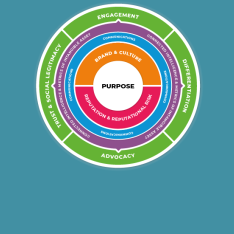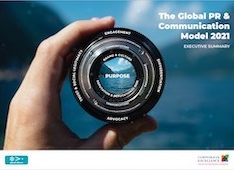
Article
16 february, 2024Principales preocupaciones en comunicación para este convulso 2024
TendenciasSorry, no results were found. Try it again!

Article
16 february, 2024Principales preocupaciones en comunicación para este convulso 2024
Tendencias7 september, 2021
Comunicación
Global PR & Communication Model: Application and applicability in Italy
The aim of this thesis is to study the application and applicability in Italy of the Globa ...


15 december, 2020
Internacionalización
Executive Summary: The Global PR & Communication Model
Executive Summary "The Global PR & Communication Model", research carried out jo ...
15 december, 2020
Internacionalización
Full Report: The Global PR & Communication Model
Executive Summary "The Global PR & Communication Model", research carried out jo ...
15 december, 2020
Estrategia
The Global PR & Communication Model launch
The Global Alliance for Public Relations and Communication Management in partnership with ...

15 december, 2020
Alineamiento y cultura corporativa
The Global PR & Communication Model [LAUNCH SUMMARY]
Video summary of the The Global PR & Communication Model launch. A new model created by Th ...
16 september, 2015
Alineamiento y cultura corporativa
Achievements and Trends in Communication: World Public Relations Forum (WPRF) Key Ideas
This document explains how the current intangible economy provides a great opportunity for ...
11 july, 2015
Comunicación
Building Bridges Between the Society and Companies is Key to Recovering Trust and Leadership
The current context of social, technological and environmental changes presents great oppo ...
13 june, 2014
Estrategia
A Hierarchy of Company Statements
Communication Challenges For Leaders • Lack of appreciation for the importance of ar ...

Página
of 1